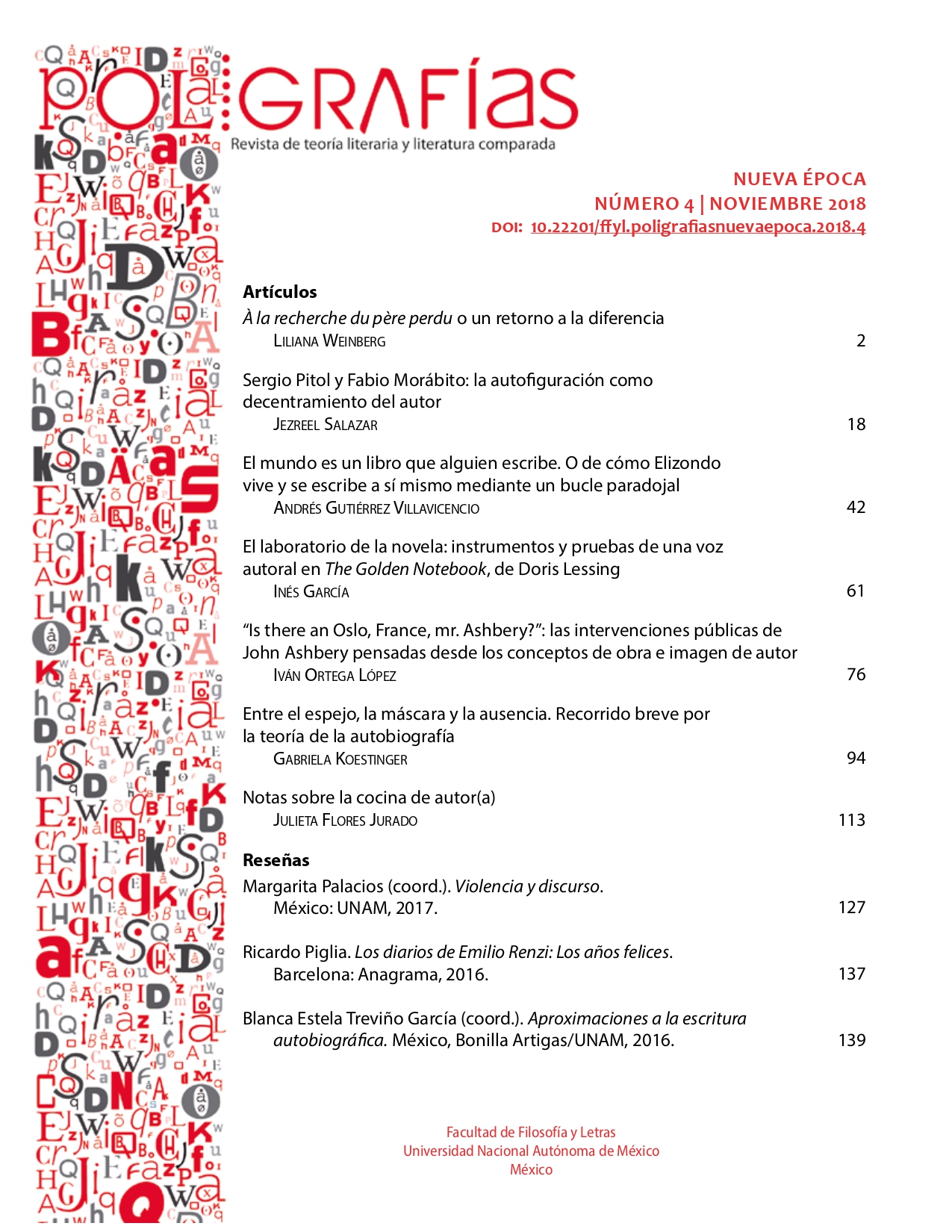Notas sobre la cocina de autor(a)
Main Article Content
Abstract
In 1969, in his lecture “What is an Author?”, Michel Foucault argued that the author function is not “universal and constant”, but instead operates within a diverse and mutable range of disciplines and discourses. If authorship can be understood, according to Foucault, as a privileged moment of individualization, it is possible to identify an emerging authorial figure in gastronomy that is based, on the one hand, on defining the cook as a figure of authority and prestige in the cultural field whose food can bear the signature of an author, and on the other, on the exclusion of subjects who have been historically discouraged and prevented from occupying an authorial position. Calling into question concepts such as “food writer” and “cocina de autor” (author’s cuisine), I propose a brief account of the invention of gastronomy as a literary field, with a special emphasis on the role of women gastronomes, and the strategies they have deployed to define themselves as authors within a system that traditionally has ignored the expression of female appetite and creativity.

